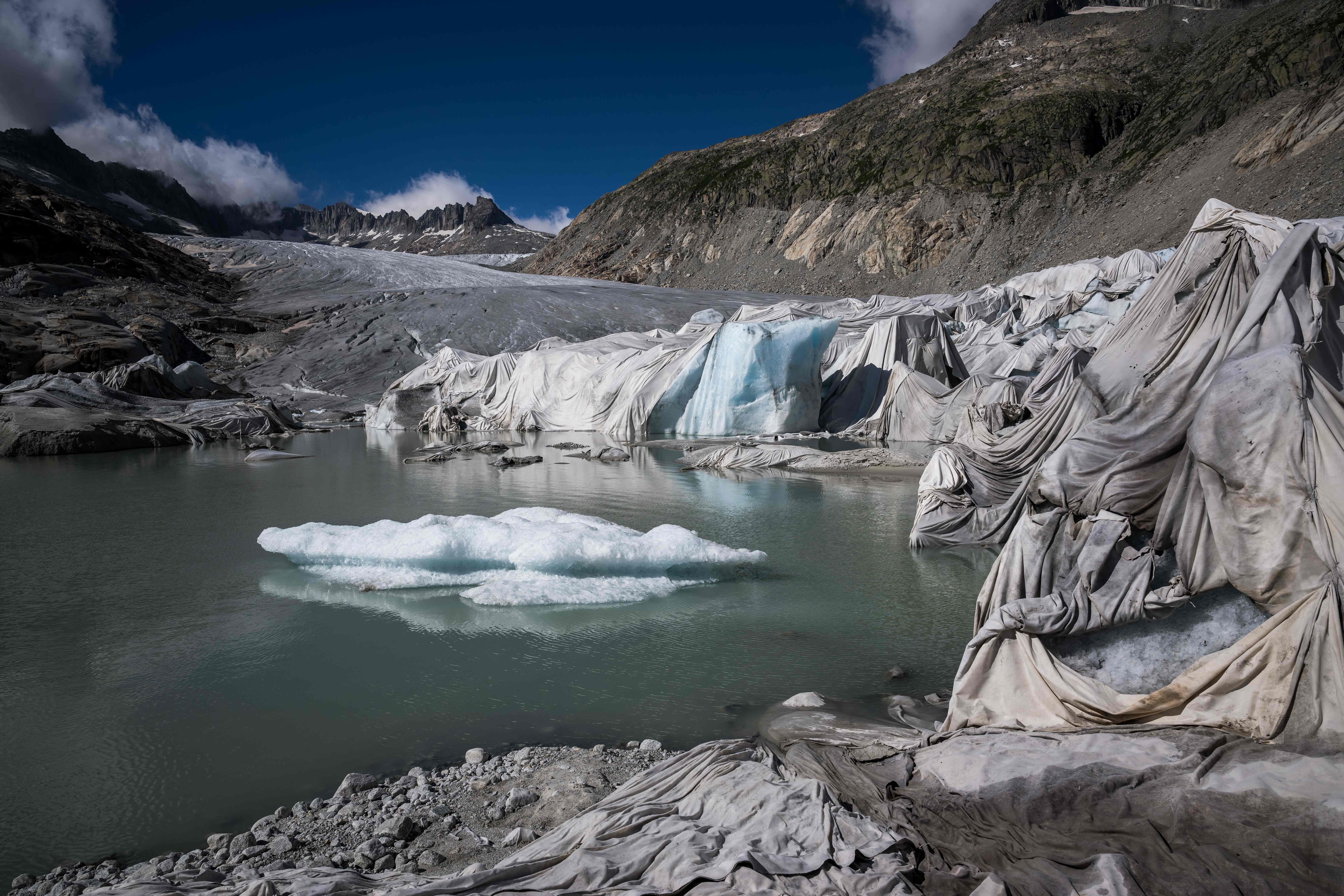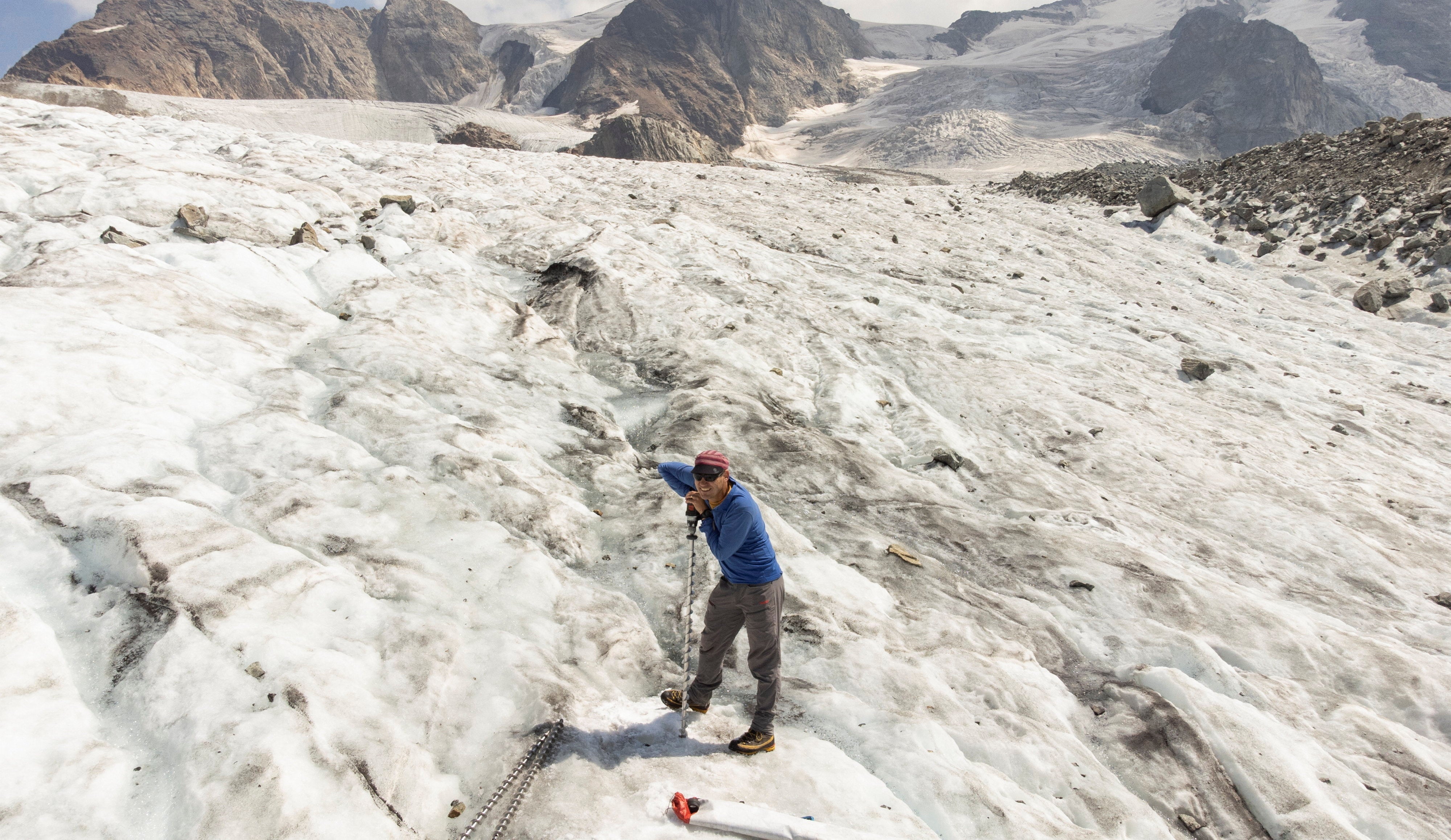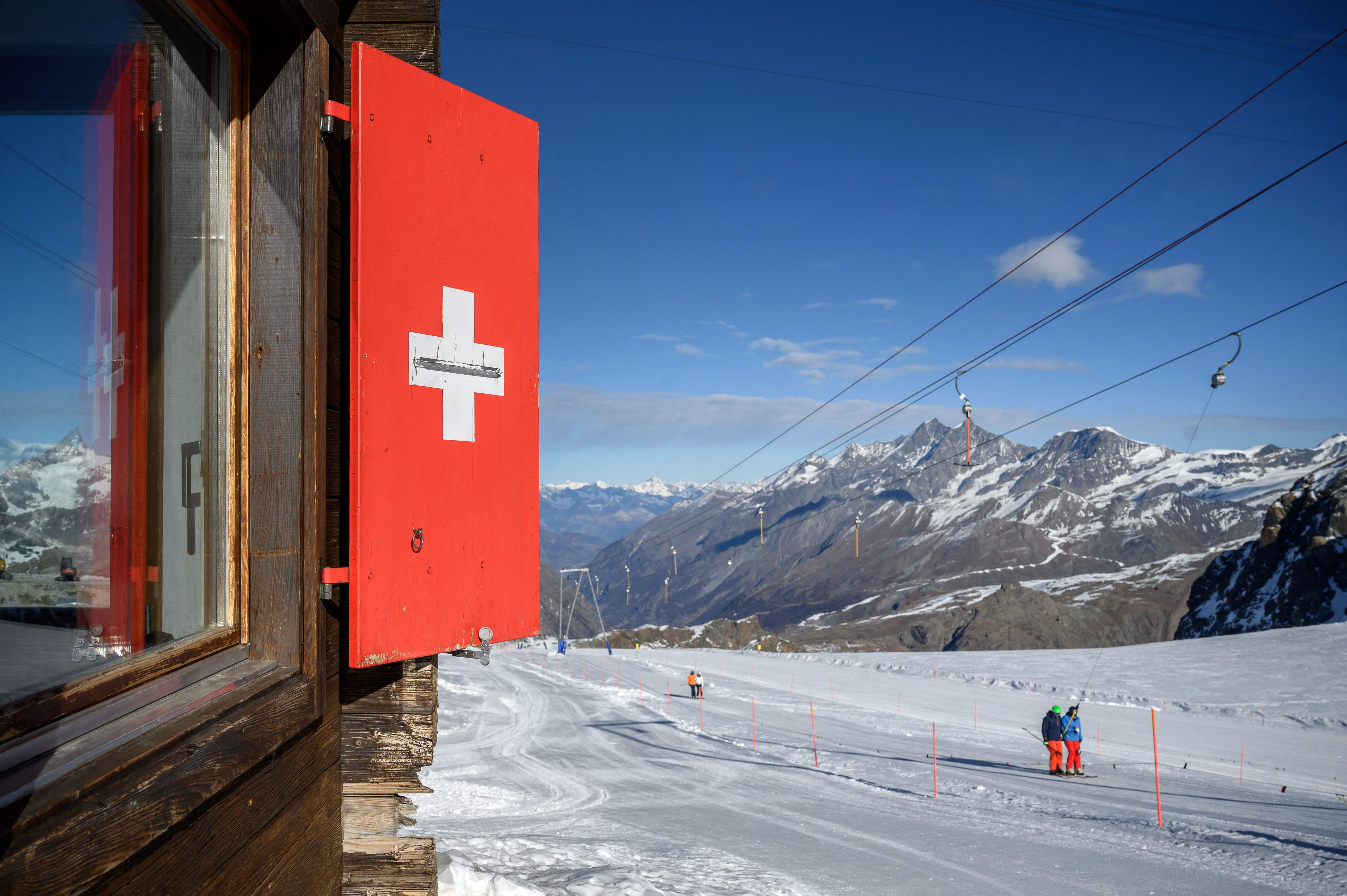Freezing point climbs to record height over Swiss Alps as heatwave grips Europe
Weather balloon rose to 5,184 metres before finding 0C, reports Aisha Rimi


Freezing point in the Swiss Alps has reached a new high, breaking a 27-year-old record, meteorologists have said. It follows record heatwaves across Europe exacerbated by human-induced climate change.
A weather balloon rose to 5,184 metres (17,008 feet) above the mountain range before it hit 0C, experts said.
The balloon had to travel nearly 70 metres (230 feet) higher than the previous Swiss record of 5,117 metres (16,788 feet), which was measured on 20 July 1995, and 375 metres (1,230 feet ) above the summit of Europe’s highest peak, Mont Blanc in the French Alps.
It is extremely rare for the freezing point to be measured above 5,000 metres (16,400 feet) in Europe. The only other time freezing point has surpassed this height in the Swiss Alps was in 1995.
Meteorologists measure the zero-degree limit above Switzerland using weather balloons launched twice a day from Payerne in the west of the country, according to the RTS public broadcaster.

As the colder temperatures are found higher and higher, wild species that live in colder climates are being pushed further up mountains to survive. But when they reach the summits, they have nowhere to go.
However, this is putting further strain on the ecosystems as more animals and more species are living in an ever-shrinking environment.
This month, Swiss glaciologist Matthias Huss said that rising temperatures were causing freshwater glaciers to melt faster than ever.
“Glaciers in the Alps are so completely off from what we’ve seen before. I’m really alarmed by the situation,” he tweeted on 17 July.
“The measurements collected at Griesgletscher today show that even with respect to the previous record in 2003 we’re one month ahead with melting. And no relief in sight.”
Glaciers in the Alpine region are already expected to lose 80 per cent or more of their current mass by the end of the century, Reuters reported. But the glaciers could disappear even faster with more heatwaves like the ones experienced in recent weeks.
“We are seeing model results expected a few decades in the future are happening now,” said Mr Huss. “I did not expect to see sch an extreme year so early in the century.”

Meanwhile, the border between Switzerland and Italy has shifted due to a melting glacier, putting the location of an Italian mountain lodge in dispute.
The Theodul Glacier’s retreat means that the bordeline has crept towards Rifugio Guide del Cervino, a refuge for visitors near the 3,480 metres (11,417ft) Testa Grigia peak, and is gradually sweeping underneath the building.
French meterologists also measured 0C above 5,000 metres on Sunday over Bordeux in the west. Warm winds then moved east towards the Alps, according to MeteoSwiss.






Join our commenting forum
Join thought-provoking conversations, follow other Independent readers and see their replies
Comments